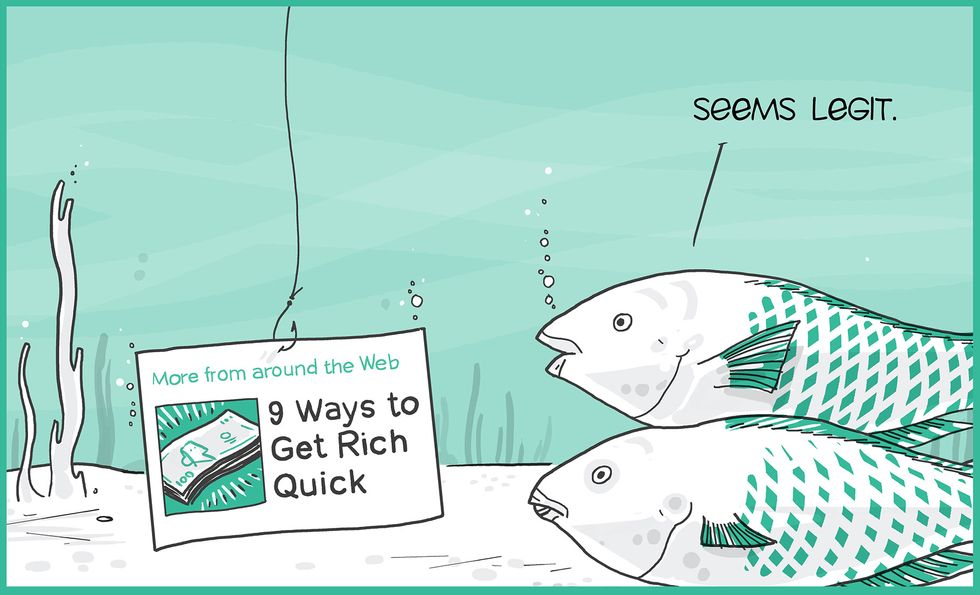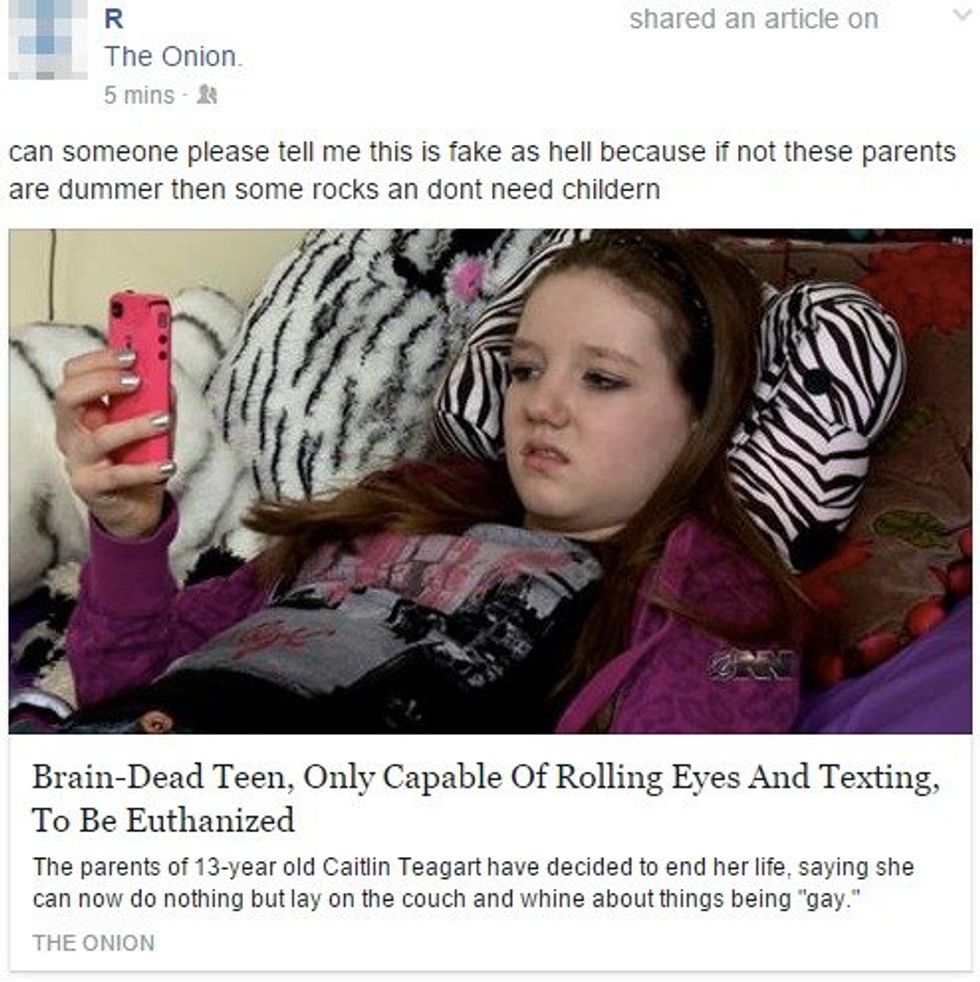"Three SHOCKING foods that cure cancer!"
"Single mom gets rich in 5 days. Here's how YOU can too!"
"Dermatologists HATE 85-year-old woman who looks 20! Her secret will surprise you!"
"GIANT CAT spotted outside Boise, Idaho!"
Journalism, like any other form of art, faces constant evolution. While the newspaper industry once boomed, Television soon took over, presenting a new world of news media that was based more on interactivity and real-time coverage, and now we've reached the point in time in which even the massive Television industry is a thing of the past; the internet has taken the convenience and interactivity of the Television and revolutionized it to the point where news can be accessed 24/7 (often times immediately after the news is made), and even where anyone can contribute to the news via social media and blogging sites.
There are many benefits to this revolutionized system of delivering news; we can see different perspectives, stylistic choices, and even means of delivery. However, there is one major downfall to this approach: the monetization of the news.
Don't get me wrong, there is a genuine career to be made out of journalism. However, while a journalist makes a career from delivering professional, clear, and accurate information that benefits the populace, writers with a stronger focus on income than quality can cleverly cheat people's curiosity to provoke them to click on poorly-executed articles with the use of buzzwords and a strong sense of urgency. This manipulative content is known as clickbait.
Clickbait seems more annoying than harmful, but, in reality, clickbait poses a serious threat to both public knowledge and the perception of quality journalism. To put this in perspective, imagine two documentaries by two different directors. One film is subtly executed, thoroughly explaining cited facts with the intent to inform, rather than to persuade, while the later is a shocking exploitation film that technically uses facts, but distorts them to promote its agenda and to give viewers an emotional response. Though the first film is obviously of a higher quality, it's much less interesting to watch than one that keeps you on the edge of your seat.
Journalism, of course, works in a similar way; we come to it seeking the truth, but we're instinctively drawn to what's going to provide us with entertainment. Merging facts with entertainment can be extremely beneficial in the learning process, but while clickbait typically posesses the entertaining end of the spectrum, seldom does it provide actual information.
So, how exactly does this threaten journalism? The problem comes down to the quantity. Quality takes time; therefore, clickbait can be rapidly produced, drawing in curious viewers and making massive amounts of money, leaving legitimate journalists far behind in popularity. Of course, clickbait doesn't only threaten journalists; it threatens consumers as well. When we buy into the emotional aspects of something, we often times forget to approach it logically, analyzing what the information is derived from and any potential biases. Sometimes, we neglect to even open the article and simply accept the headline, causing us to fall victim to misinformation.
Sometimes to hilarious extents...
Many social media platforms have begun to take action against fake news, and it's important that we acknowlege that clickbait is nearly as dangerous as fake news when we allow it to take advantage of us. In the end, it's essential that, in the search for legitimate journalism, we take our time to consider where our information is coming from, and if it's intended to inform the masses, or simply profit from their emotions.










































